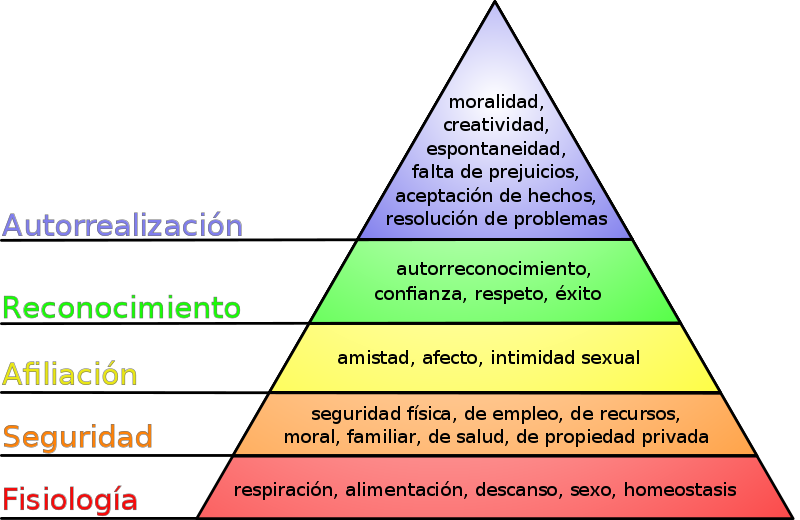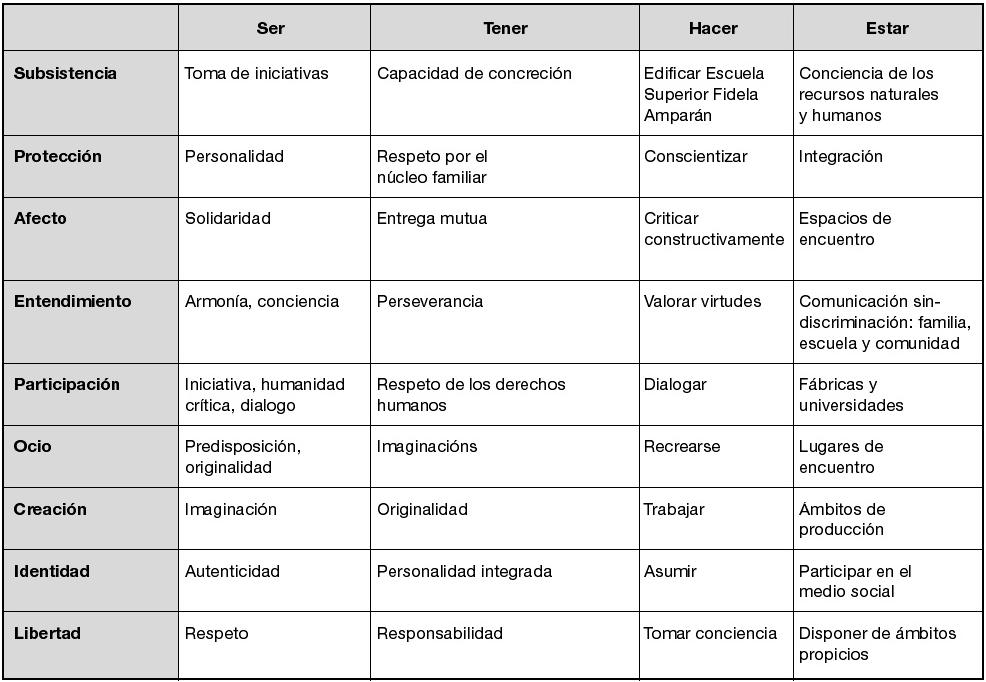Human needs 04
The ultimate goal of an economic and social system should be to meet the needs of people in a fair way towards the rest of the population and in a sustainable way towards the planet. But what are these needs really?
Generally, when talking about needs, reference is made to Maslow’s pyramid, which presents the needs under a hierarchical idea in which some needs must be satisfied before accessing others.

Maslow’s Pyramid. (Source: Wikipedia)
Faced with this proposal, the Chilean economist Manfred Max-Neef argues that all people, in all parts of the world and at all historical moments, share the same needs, all equally important, and the only thing that differs is the way they we have to satisfy them.

Matrix of ontological and axiological needs. (Source: Human Scale Development. Manfred Max-Neef)
Each of the ways to satisfy a need is called a “satisfier” and there are multiple satisfiers for needs. The fundamental difference of this proposal with respect to Maslow’s is that for Neef the needs have to be covered simultaneously and the way in which each one of them is satisfied is especially relevant so that the model is, worth the redundancy, more satisfying.
Understanding our needs from this other paradigm is important to assess more accurately the proposals that the current model offers us (mainly mediated by consumption) and check whether or not they really satisfy our needs. It is also a very useful frame of reference for any project with a transformative claim that seeks to really assess the impact and need of its activity (of its product or service) in the territory in which it is inserted.
